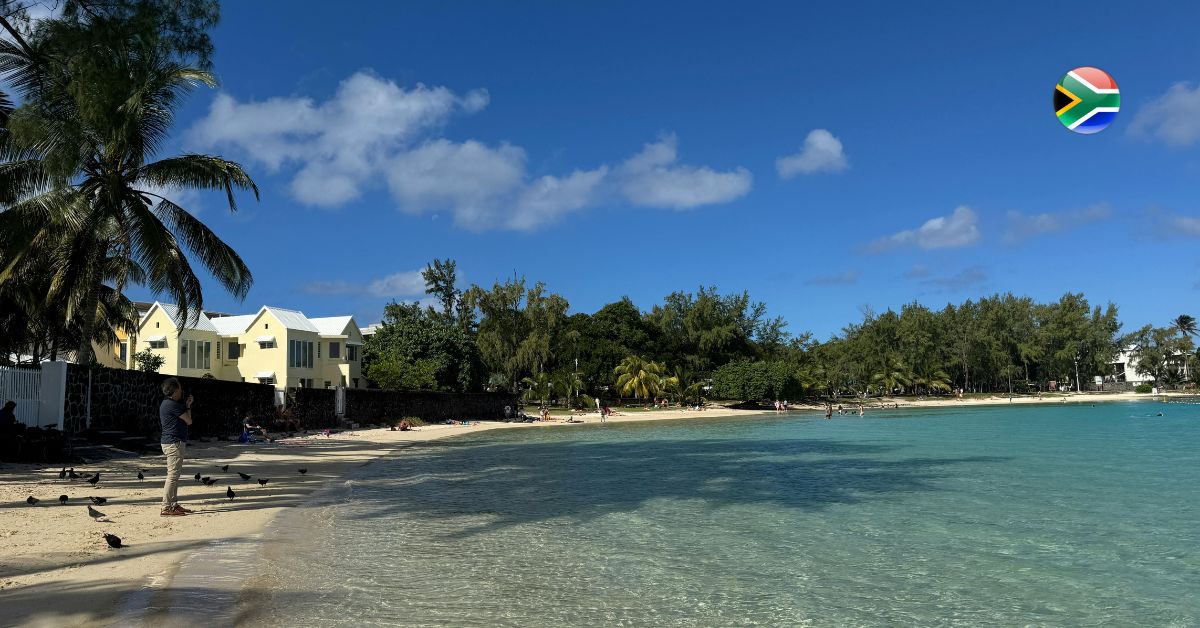
For South Africans thinking about a second home or offshore investment, Mauritius has become a serious contender. The island offers stability, investor-friendly policies, and accessible residency pathways, which explains why property in Mauritius is drawing so much attention.
Why South Africans are investing in Mauritius
Mauritius is consistently ranked as one of Africa’s most business-friendly countries. Its low-tax regime, reliable infrastructure, and strong financial services sector make it appealing to investors seeking long-term stability.
For South Africans, the appeal of investment in Mauritius often comes down to three things:
- A stable and transparent financial environment.
- A short flight from Johannesburg, Durban, or Cape Town.
- A clear legal framework for foreign property ownership.
This combination makes Mauritius a practical choice for asset diversification and for families considering relocation.
Read more: Moving to Mauritius from South Africa – what you need to know.
Property investment opportunities in Mauritius
The government has opened the market to foreign buyers through structured schemes, making the process both secure and transparent. South Africans exploring real estate investment in Mauritius can choose from:
- Integrated Resort Scheme (IRS): Large estates with luxury facilities like golf courses and marinas.
- Real Estate Scheme (RES): Smaller-scale, high-end residential projects.
- Property Development Scheme (PDS): Open to all foreign buyers, with a focus on sustainable developments.
These schemes make it possible for non-residents to purchase approved properties without the red tape common in other countries.
Buying property in Mauritius as a South African
For those considering buying property in Mauritius as a South African, the process is straightforward. Properties available to non-residents are listed under the IRS, RES, or PDS schemes.
A key advantage is that purchasing property valued at USD 375,000 or more qualifies you for a Mauritius residence permit, meaning the property serves both as an investment and a practical route to residency.
Residency options in Mauritius
Ownership of a qualifying property can provide a pathway to Mauritius residency for you and your immediate family. This allows access to local healthcare, education, and the ability to plan long-term offshore wealth strategies.
Other routes, such as work or business-based permits, are available for those establishing a professional presence. Overall, Mauritius’ residency requirements are transparent and achievable, making it a practical option for South Africans seeking a stable base abroad.
Moving to Mauritius – financial benefits of real estate investment
The financial incentives are a major driver for real estate investment in Mauritius:
- No capital gains tax.
- No inheritance or estate duties.
- No property taxes.
For South Africans thinking about succession planning or wealth preservation, these benefits are significant. Additionally, demand from tourism and the expat market can provide potential rental income, which means your property can generate returns even when not in use.
Read more: Mauritius – A perfect haven for South African expats and business owners.
What non-residents need to know
If you’re a South African looking to buy property in Mauritius, it’s important to know that foreign ownership is restricted to approved developments. This includes the Integrated Resort Scheme (IRS), Real Estate Scheme (RES), and Property Development Scheme (PDS). While the range of property for sale in Mauritius for non-residents is therefore limited, these schemes are fully regulated, providing legal protections and a secure framework for buyers.
Here’s what you should keep in mind when shopping for property in Mauritius:
- Check the scheme: Make sure the property is officially approved under IRS, RES, or PDS, as only these developments are open to non-residents.
- Factor in all costs: Aside from the purchase price, budget for registration fees, legal fees, and any ongoing management or service charges.
- Plan your money transfer: Funds will need to move from South Africa in line with exchange control rules. Using a bank familiar with international transfers can save a lot of headaches.
- Consider residency: Properties above USD 375,000 often qualify for a Mauritius residence permit, letting you and your family live on the island.
- Get professional help: A local lawyer, real estate agent, or financial advisor can guide you through contracts, permits, and compliance—both in Mauritius and back home in South Africa.
Following these steps helps make sure your investment is secure, straightforward, and rewarding, giving you confidence in both the financial and lifestyle benefits of owning property on the island.
Read more: Buying property in Mauritius as a South African – a solid option for second residency by investment.
Is property investment in Mauritius right for you?
Mauritius acts as both an investment opportunity and an escape clause for South Africans seeking security beyond local borders. Its predictable regulatory framework, investor-friendly policies, and property-linked residency options provide a realistic Plan B without sacrificing lifestyle or asset growth.
For those concerned about domestic economic, political, or infrastructural uncertainty at home, Mauritius offers a safe, stable, and tax-efficient alternative. Property ownership on the island allows South Africans to diversify assets, secure a legal foothold abroad, and plan for the long term with certainty.
How can FinGlobal support your move?
FinGlobal provides expert guidance for South Africans looking to put down roots in Mauritius. From managing international transfers to retirement annuity withdrawal and expat tax compliance, we make sure your cross-border finances are handled smoothly and securely. Our experienced team can guide you through every process, ensuring your tax and financial affairs are properly structured for your life abroad.
To find out more about our convenient, trusted cross-border financial services for expats, leave your contact details below and we’ll be in touch.